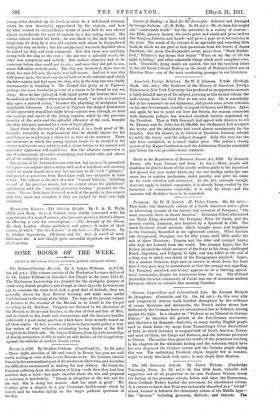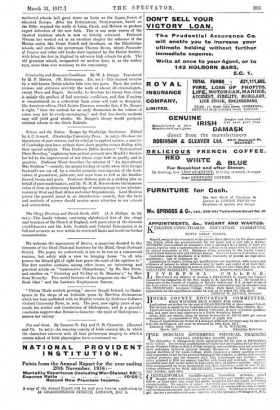The Old Grammar Schools. By Foster Watson. (Cambridge University Press.
Is. 3d. net.)—In this little book, valuable and suggestive out of all proportion to its size, Professor Watson traces the history of our grammar schools, before and since the Renascence, when Cardinal Wolsey headed the movement for educational reform. It is curious to know that Eton was technically described as a " trivial" school, because it followed the elementary course of the Middle Ages— the " trivium " including grammar, dialectic, and rhetoric. The
mediaeval schools laid great stress on Latin as the lingua franca of educated Europe. After the Reformation, Protestantism, based on the Bible, required the study of Latin, Greek, and Hebrew to produce expert defenders of the new faith. This is one main source of the classical tradition which is now so bitterly criticized. Professor Watson has worked out in an excellent chapter the influence of the Marian exiles, like Deans Nowell and Goodman, on the Elizabethan schools, and credits the picturesque Thomas Becon, whose Pomander of Prayers and other odd books were reprinted by the Parker Society, with being the first in England to advocate high schools for girls. The old grammar school, reorganized on modern lines, is, as the author says, more than ever necessary to the community.



























 Previous page
Previous page